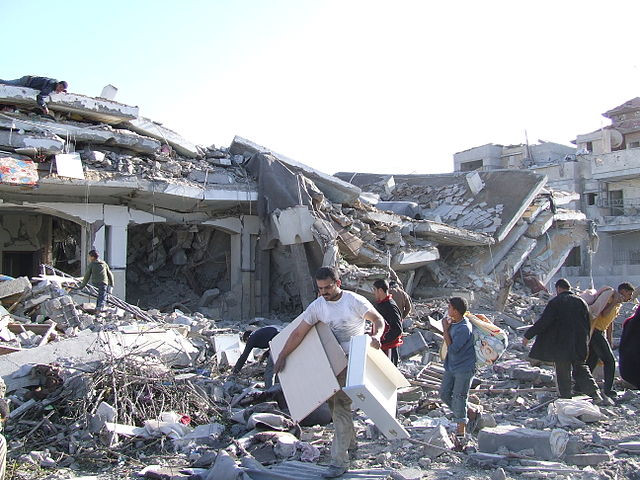At least 17 Palestinians, including children, were killed on Thursday during an Israeli airstrike that targeted a school in the Nuseirat refugee camp in central Gaza. The school, which had been repurposed as a shelter for displaced residents, was struck amidst ongoing fighting in the densely populated region. Local hospital officials at Al-Awda reported the casualties and stated that rescue efforts were still underway in the aftermath of the attack.
The Israeli military confirmed the strike, claiming that the school had been used as a Hamas command and control center. "The facility was embedded with terrorist operations," the military stated. However, the strike has drawn widespread criticism due to the number of civilian casualties, particularly among women and children, as Gaza's healthcare system remains overwhelmed by the ongoing conflict.
As the war between Israel and Hamas approaches its second year, the situation on the ground in Gaza remains dire. Nearly all of Gaza's 2.3 million residents have been displaced by the relentless fighting. Since the war's inception in October 2023, Israeli airstrikes have killed nearly 43,000 people in the territory, according to Palestinian health officials. Israel's military campaign was launched in response to a Hamas-led attack last year, which resulted in the deaths of around 1,200 Israelis and the kidnapping of more than 250 hostages, many of whom are still being held in Gaza.
In northern Gaza, Israeli forces have intensified their offensive around the town of Jabalia. The military operation there has resulted in the evacuation of thousands of people and the detention of more than 200 suspected militants. However, Palestinians in the region have expressed fears that Israel's goal may be to create an uninhabited buffer zone, or even pave the way for a return of Israeli settlers who left Gaza in 2005. Israel has denied such plans, insisting that the campaign's objective is to dismantle Hamas as a military and governing power.
The ongoing violence has exacerbated the humanitarian crisis in Gaza. According to the Civil Emergency Service, Israeli attacks have caused the suspension of vital rescue operations, with multiple emergency workers wounded or arrested. One of the few remaining fire trucks was destroyed by Israeli tank fire. The situation is especially grim in the northern region, where hospitals are running out of essential supplies and have refused Israeli orders to evacuate patients.
International efforts to mediate a ceasefire have faltered, despite renewed pushes from the U.S., Qatar, and Egypt. U.S. Secretary of State Antony Blinken has made numerous visits to the region in an attempt to broker a truce, but negotiations have stalled. Hamas has not yet named a successor to Yahya Sinwar, its leader who was killed by Israeli forces, further complicating any chance for progress in talks. Sinwar's death was seen by some as an opportunity for renewed discussions, but little has come from it so far.
Hamas officials are reportedly traveling to countries such as Turkey, Qatar, and Russia, seeking diplomatic support. Meanwhile, Israel continues its military campaign, with no clear plan for Gaza's governance once Hamas is dismantled. The lack of a comprehensive post-war strategy has fueled concerns that the conflict will continue to drag on with devastating consequences for civilians.
The situation has also sparked international controversy regarding media coverage and journalist safety. Earlier this week, Israel accused six Al Jazeera journalists of having ties to Hamas, though these claims have not been independently verified. Al Jazeera has condemned the accusations, calling them part of a broader effort to discredit its reporting. Several of the network's journalists have been killed in the conflict, further inflaming tensions between Israel and the press.




